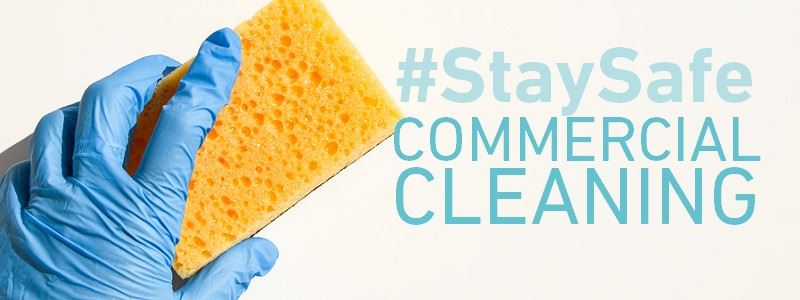With the spread of COVID-19 across the UK, businesses find themselves in unprecedented times. There are closures across the country, lifestyles are changing and uncertainty looms every day.
For those businesses that remain open – essential services, shops and takeaways – what can be done to ensure the safety of employees and customers?
Hygiene in UK Workplaces
Prior to the occurrence of COVID-19, a UK survey conducted by SCA revealed that one in ten people believe their health has been compromised by poor workplace hygiene standards. In fact, most of the participants of the survey “wished their place of work was more hygienic”.
The same survey listed these top ten most unhygienic workplace habits, which are often seen in all sorts of businesses:
- Sneezing without using a tissue
- Leaving dirty dishes in the kitchen or sink
- Not washing hands after using the bathroom
- People not flushing the toilet
- Messy desks covered in rubbish
- Not emptying full bins
- Eating at a desk
- Leaving empty toilet tissue roles in the bathroom
- People not disposing of sanitary protection products properly
- Biting nails
The spread of bacteria caused by these issues is a key factor in employee sickness, not to mention a high risk to customer health. It’s estimated that poor hygiene standards cost the UK £13.7 billion in sick days, mainly due to the spread of viruses from touching communal surfaces with unclean hands.
Eighty percent of common infections are spread by hands. Not coughing. Not sneezing. Hands. Think of all the surfaces touched day-to-day in one workplace… and bacteria can live on these surfaces for hours – plenty of time to infect multiple people and spread further.
Keeping the Place Clean
Ask yourself, is your business actually hygienic?
Here are some tips to help all members of a company get involved in clean practices:
- A storage space (lockable) so employee’s possessions are safely put away and not all around the workplace
- Sufficient bin capacity around the workplace to avoid overflowing waste and un-binned waste
- Tissues available around the workplace
- A cleaning logbook fairly involving everybody
- Personal employee calendars to assign weekly cleaning tasks
- A suitable and accessible stock of cleaning products
- Incentives around cleanliness
Another thing to remember is that general cleaning contracts agreed years ago may no longer be adequate, so it’s crucial to evaluate your current cleaning service with questions like:
- Does the cleaning service target places with highest concentrations of bacteria?
- Is cleaning conducted often enough?
- Can the cleaning service adapt to exceptional circumstances?
- Is cleaning performed effectively and to a high enough standard?
- Is there a note of what cleaning products are being used?
If the answer to any of these questions is no, then it’s time to up your standards!
Commercial Kitchen & Duct Cleaning
At Direct365, we began supplying commercial cleaning services primarily due to the fire risks posed by uncleaned kitchen ducts.
We wanted to offer safety to food businesses across the UK by providing professional deep cleaning that would prevent the build-up of grease.
Clearly, the spread of bacteria in kitchens is just as much a viable risk and a worthy reason to invest in a reliable and effective cleaning company. With takeaways remaining open for the time being, we are pleased to still be offering this service to any business that needs it.
However, there’s no reason for our deep cleaning to be limited to a certain type of workplace. So, no matter what nature your business is, please feel free to enquire on 0808 163 9660 or visit our commercial kitchen & duct cleaning services page, here.

